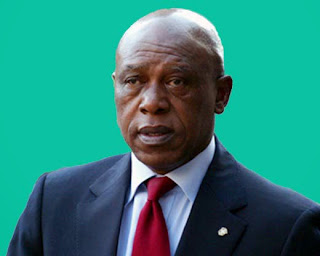"
1. Our decision is to fight for the
economic emancipation of the people of South Africa, Africa and the world.
Economic Freedom Fighters (EFF) locate the struggle for economic emancipation
within the long resistance of South Africans to racist colonial and
imperialist, political, economic, and social domination. This glorious
resistance started with the Khoi and San people rising against colonial
domination, marked by the arrival of settler colonists in 1652 in the Cape.
This basically represents more than 350 years of Africans’ resistance against
colonial and economic domination and exploitation.
2. The EFF recognises that, despite
temporary victories in this or that battle, Africans were defeated, humiliated,
and enslaved by colonial settlers, thereby symbolising colonial victory over
the indigenous people of the South African territory. The EFF draws inspiration
from the gallant fight those who came before us have mounted, generation after
generation, against the superior firepower of the colonists. The EFF intend to
elevate this resistance to a decisive victory to vindicate the justness of the
cause of liberation wars and to pay tribute to all those who perished fighting
for the liberation of the African people and all the oppressed people of our
land.
3. Those who fought the gallant wars of
resistance did so to resist forced dispossession of land, wealth, livestock and
heritage, which they had cherished and inherited from their forebears. More
than 350 years later, the war of resistance has not been won, and the battles
that were fought almost represent nothing, because 20 years after the
attainment of formal political freedom, the black people of South Africa still
live in absolute mass poverty, are landless, their children have no productive
future, they are mistreated and they are looked down upon in a sea of wealth.
4. While relatively developed, South
Africa like many other colonies is still trapped in the colonial division of
labour as supplier of primary commodities to the coloniser nations. This colonial
feature cannot and will never be broken by continued economic dominance of
private corporations, particularly in the natural and mineral resources sector.
Multinational and private ownership of South Africa’s commanding heights of the
economy should be discontinued in order to
stimulate State-led and aided industrial development.
5. Our indignation at the continued
economic domination of the people of South Africa and the extreme exploitation
of the black working class explains where we come from, where we are, what our
mission is, what our character is, and what is to be done to emancipate the
black people of South Africa, the working class in particular, from economic
bondage. The solutions we provide represent a coherent ideological tradition
and draw inspiration from developments around the world on what has been done
to advance the development and betterment of people’s lives in the aftermath of
the defeat of colonialism and against imperialism.
6. South Africa is rooted in the
alliance between British and Afrikaner capital. From its inception, capitalism
in South Africa was underlined by racism, segregation, and sexism. It
discriminated and oppressed the black majority. It discriminated and oppressed
women. South African capitalism continues to be characterised by the extreme
exploitation of the black working class. In short, the black majority, whatever
their class location, are integrated into the mainstream of the economy in a
subservient position relative to white people. While the legalistic forms of
colonial-apartheid domination have been eroded 20 years ago, the economic
system that marginalised, oppressed and exploited the black majority is still
intact, with a few individuals benefiting, but only because they have been
co-opted to portray a wrong picture that all is and will be well in our
country.
7. The EFF note and appreciate the role
played by generations of political freedom fighters who sacrificed their lives,
were imprisoned, exiled, banished and separated from their families in pursuit
of freedom. The reality, nonetheless, is that the political freedom attained
symbolically in 1994 through inclusive elections have not translated into
economic freedom, which must empower and assist the oppressed and exploited
people of South Africa to be liberated from economic and social bondage. This
feature of South Africa justifies our struggle for economic freedom and is also
directed at the emancipation of the African continent."





















.jpg)